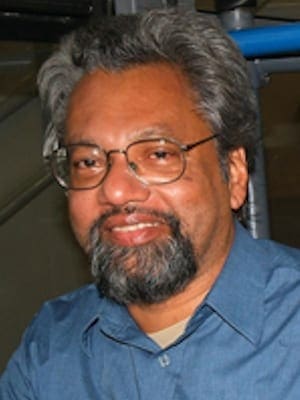Why do men like President Assad of Syria prefer to rule over rubble than surrender power?
Arrogance in politics is compounded of ignorance, willful blindness and fantasies of invincibility.
And when entire societies prostrate themselves before such arrogant rulers, what comes to mind are the controversial Freudian notion of a collective “death-wish” and the biblical language of the “demonic.”
Perceptive observers of the human condition, like the Jewish political thinker Hannah Arendt, have reminded us that evil at its most radical happens not in acts of blatant, monstrous savagery, from which most of us may easily distance ourselves, but in the mundane banality of ordinary acts of routine dehumanization.
No tyrant can last for long without a vast army of people, often decent and conventionally “moral,” who passively follow orders. They don’t have to be all soldiers, policemen and civil servants/bureaucrats.
The Nazi regime, from which Arendt fled, was served by brilliant scientists, doctors and engineers who had anesthetized themselves to the suffering around them and contributed, often as willing agents, to that suffering and never asked the questions: “Whose interests are promoted by my work?” and “Who is bearing the costs of my work?”
These are questions that all people in liberal democracies, too, should be pondering, but few, alas, do.
Christian parents and educators can best serve the kingdom of God by teaching children, from an early age, the responsibility of disobedience – of learning to say “no” and of questioning what they see and hear, not least in the pulpits of many Christian churches.
I am encouraged that signs of such responsible disobedience are beginning to emerge in the Christian community of my own country.
Monday was the 65th anniversary of Sri Lanka’s national independence, and the Anglican Church observed it with a three-hour service in the cathedral in Colombo, not of thanksgiving but of public lament for the state of the nation and especially the collapse of proper governance.
It was attended by hundreds from other Christian denominations as well as non-Christian observers, all of us dressed in white (the traditional color of mourning).
What weapons can the church wield against oligarchic despotisms, apart from prayer, symbolic acts of protest and courageously saying “no”?
Central are the word of the cross and the simple signs of water, bread and wine – tokens of an alternative identity and supreme loyalty if understood and practiced properly. And, of course, martyrdom.
A few days ago, I attended a fascinating lecture in a theological college in Singapore on the “Lost World of Genesis One” by a visiting American professor of Old Testament, John Walton.
His central argument was that the opening chapter of the Bible is not about “material/physical origins” as much as “functional origins,” that is, the ordering of a sacred space in which the God of the cosmos dwells.
The literary genre appropriate to the chapter is that of ancient “Temple texts;” thus, the framework of a six-day week, because many official temple inaugurations took place over a week.
The climax of the chapter is the “rest” of God when God surveys the place of his habitation and comes to make his throne in it.
I have written and preached on this chapter many times, and I found Walton’s approach deeply respectful of the integrity of the text and sensitive to the thought-world of the first Israelite readers and their neighbors in Egypt, Mesopotamia and Canaan.
I am persuaded by his interpretation of the divine “rest” by analogy with other texts, such as Psalm132:8,14 and Isaiah 66:1. The literal opposite of “rest,” after all, is “unrest,” not work.
God’s “rest” in creation signifies his sovereignty over the forces of natural chaos and social upheaval that always threaten to overwhelm God’s people.
Seeing the material world as the Temple of God, with human beings (women as well as men) as both his image in the Temple and his priests engaged in service to the Temple, is religiously revolutionary and politically liberating.
But how does one believe in the sovereignty of such a God in a world that seems so godforsaken?
When evil seems enthroned in places such as the nations mentioned above and rich nations wreak havoc with the earth and its nonhuman creatures, how do the people of God witness to the “rest” of divine rule?
Much of 20th-century theology, especially following the unspeakable horrors of the Holocaust, Hiroshima and Nagasaki, has learned to interpret divine sovereignty in terms of the “Trinitarian history” of a God who suffers with and for his creation without ceasing to be God.
Our tears are but a drop in the ocean of God’s own tears.
Easter is not only a reversal of Good Friday, but also its vindication. The risen Christ still bears his wounds, and his reign is the reign of a vulnerable, suffering love in which he calls his people to participate.
The arrogant power-fantasies of Herods and Caesars are undermined not by force of arms but by the faithful testimony of men and women, in word and deed, to a way of life grounded in a different understanding of being human.
Vinoth Ramachandra is secretary for dialogue and social engagement for the International Fellowship of Evangelical Students. He lives in Sri Lanka. This column first appeared on his blog.
Secretary for dialogue and social engagement for the International Fellowship of Evangelical Students. He lives in Sri Lanka.

